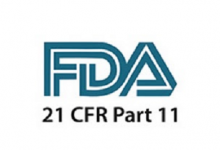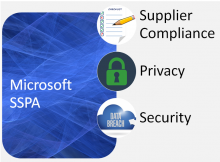PCI DSS

The Payment Card Industry Data Security Standard (PCI DSS) is a set of security requirements endorsed by the five most globally influential payment brands: Visa, Mastercard, JCB, Discover and American Express. It is a mandatory annual requirement for any business (merchant or service provider) which stores, processes or transmits payment card data, to attest their compliance with the standard.
Why is PCI DSS compliance important?
- Demonstrates that your business uses and protects the confidential payment data of your customers in a safe and secure way, minimizing risks associated with payment card fraud.
- Assurance that the company complies with regulatory standards and data protection laws
- Crucial to have the right security controls in place to ensure customer payment information is secure.
Why Riskpro India for PCI DSS Compliance?
- Riskpro understands PCI DSS regulations at its core. This is because we have been advising companies on NIST 800-53, NIST 800-171, FISMA, FEDRAMP, SSAE, HIPAA and other regulations.
- Riskpro has developed an integrated set of controls for compliance with all the regulations mentioned about. The tool has all the controls required for CMMC regulation and you can find out your maturity instantly. To learn more on the tool, write to info@riskpro.in
How Riskpro can Help with PCI DSS Compliance?
1. PCI DSS Readiness and Gap Assessment
2. Consulting / implementation support
- Information Inventory
- Risk Assessment as per PCI DSS Framework
- Mapping of security controls
Steps in PCI Compliance
Define Scope
Defining coverage of entities, locations and card processing
Gap Analysis of PCI DSS Controls
Develop and Implement
Gap Closure
Develop PCI DSS Compliant Framework
ASV Scans
Assessment and Reporting
Evidence Gathering and Onsite Assessment
Final report (AOC, ROC, COC)
Staff Training on PCI DSS Standards
PCI DSS Certificate
Contact Riskpro
To learn more about PCI DSS Compliance services and to get started with PCI DSS certification, drop an email to info@riskpro.in or call 9833767114
FAQs
1: What is PCI DSS compliance?
PCI DSS (Payment Card Industry Data Security Standard) compliance is a set of security standards designed to protect cardholder data during credit card transactions. It ensures that organizations that handle payment card data maintain a secure environment to prevent data breaches and fraud.
2: Who needs to be PCI DSS compliant?
Any organization that accepts, processes, stores, or transmits payment card data, regardless of its size or the number of transactions, must be PCI DSS compliant. This includes merchants, service providers, financial institutions, and other entities involved in cardholder data processing.
3: Is PCI DSS compliance mandatory?
Yes, PCI DSS compliance is mandatory for any organization that handles payment card data. Compliance is essential to safeguard cardholder data and maintain the trust of customers and card issuers.
4: What are the consequences of non-compliance with PCI DSS?
Non-compliance with PCI DSS can result in severe consequences, including financial penalties, increased transaction fees, loss of card payment privileges, damaged reputation, and potential legal action.
5: How often is PCI DSS compliance required to be validated?
The frequency of PCI DSS compliance validation depends on the number of card transactions processed by an organization annually. Typically, it can range from an annual self-assessment questionnaire to an on-site assessment by a QSA every year.
6: Can a third-party vendor be PCI DSS compliant on behalf of an organization?
Yes, some organizations may choose to outsource payment processing to third-party vendors. These vendors must be PCI DSS compliant, and the organization should ensure this compliance by conducting due diligence and obtaining written assurances of the vendor's compliance.
7: Is PCI DSS compliance a one-time effort?
No, achieving and maintaining PCI DSS compliance is an ongoing process. Security measures and practices need to be continuously reviewed, updated, and improved to adapt to emerging threats and changes in the organization's infrastructure and processes. Regular security testing and risk assessments are essential to maintain compliance over time.
















